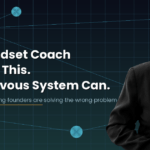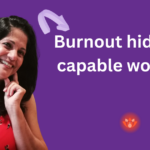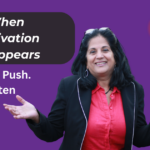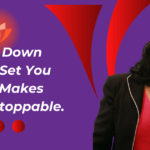Let’s get honest: You’ve read the books, done the mindset work, and even have a to-do list that is so organised that it should have its own calendar. So why are you still procrastinating?
Why do you delay the one conversation that matters? Daydream about different possibilities.
Or sit on the one idea that’s been calling you for months?
It’s not because you don’t know what to do. It’s because your system doesn’t feel safe doing it. Fear, overwhelm or??
Most high performers are stuck in what I call “productive avoidance.” You stay busy. You stay focused. You stay in motion.
But not on that thing.
The thing that feels exposed.
The thing that would change things.
The thing that would reveal who you really are and what you really want.
And your nervous system, brilliant and protective, knows exactly how to keep you away from it.
Let’s reframe procrastination for what it often is: emotional protection. You’re not lazy. You’re not flaky. You’re not inconsistent.
You’re protecting yourself from:
→ The emotional vulnerability of being seen
→ The internal pressure of doing something that really matters
→ The embodied memory of what it meant to try and fail, or worse, try and succeed, only to feel unsafe afterwards
This is why “just start” advice doesn’t land.
Because starting would mean facing what your system is built to avoid:
The sensations of fear, pressure, exposure, or abandonment, even if they’re no longer relevant.
Here’s what this looks like in real life: A client of mine, a competent senior strategist, came to me saying:
“Every time I get close to putting myself out there, I freeze. I’ll work on everyone else’s stuff but avoid my own. It’s like my system won’t let me follow through.”
What did we discover?
Her efforts were only validated as a child if they were “perfect.”
Any sign of struggle = shame.
Any success = pressure to sustain it.
So her nervous system internalised a quiet belief: If I put my work out there, I’ll be judged. Or I’ll have to keep proving myself. Or I’ll fail publicly.
It wasn’t a strategy issue. It wasn’t an execution flaw.
It was her system doing its job to keep her safe.
Once we untangled that in the RESET System™, her entire approach shifted.
She didn’t need more motivation.
She needed more internal safety.
This is why procrastinating doesn’t respond to planning.
Because procrastinating isn’t about the task.
It’s about what the task represents.
→ If the task means visibility, and visibility feels like a threat… your system will delay.
→ If the task means commitment, and commitment feels like a trap… your system will delay.
→ If the task means change, which has historically meant loss… your system will delay.
Not because you’re broken.
But because your body is brilliant and has been trained by experience, not logic,
So let me ask you: What does your procrastinating protect you from?
That question isn’t rhetorical.
It’s the key to unlocking the deeper nervous system pattern.
Because beneath the delay is wisdom.
You can shift without force when you stop shaming yourself for procrastinating and listen to what your body tells you.
You don’t need more pressure.
You need more permission.
To move at the speed of safety.
To rewire what your system equates with risk.
To complete not because you “should” but because it feels safe to do so.
This is the deeper conversation we’re having inside my free masterclass.
We’ll unpack:
→ Why high achievers procrastinate their most aligned work
→ How early experiences shape your nervous system’s response to pressure and visibility
→ Why traditional productivity tools fail when the real issue is emotional safety
→ How to rebuild trust with yourself—at the level where it actually matters
Because this isn’t about time management.
It’s about nervous system alignment.
And that’s where everything changes.
👉 Come join me live.
We’ll work at the root, not the surface.
Have you ever noticed yourself stalling (procrastinating) on the exact thing you care most about?
I’d love to hear what one task you’ve been avoiding (and what do you think it’s protecting you from)? Chat with me.






